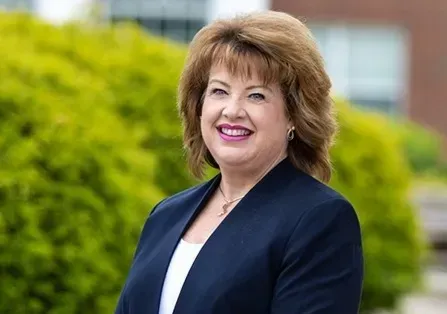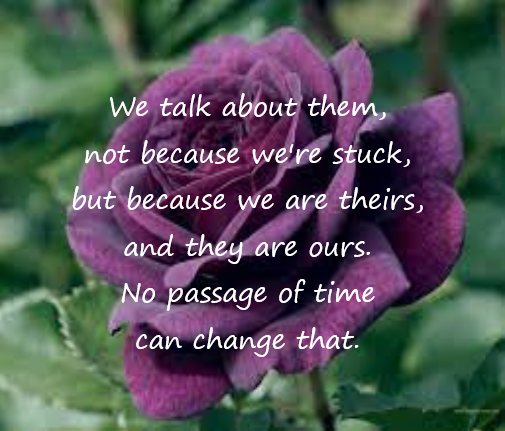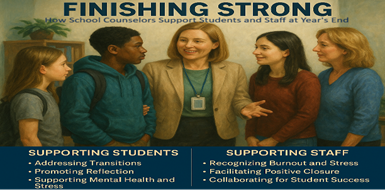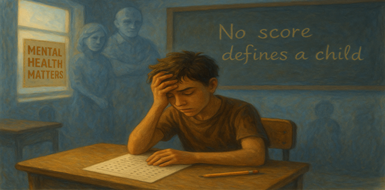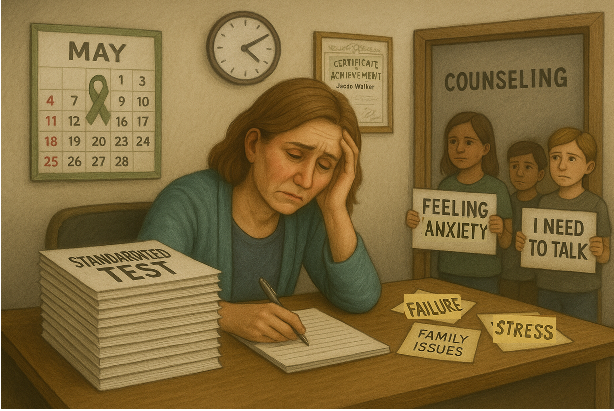Closing the Year with Care
End-of-Year Support for School Counselors
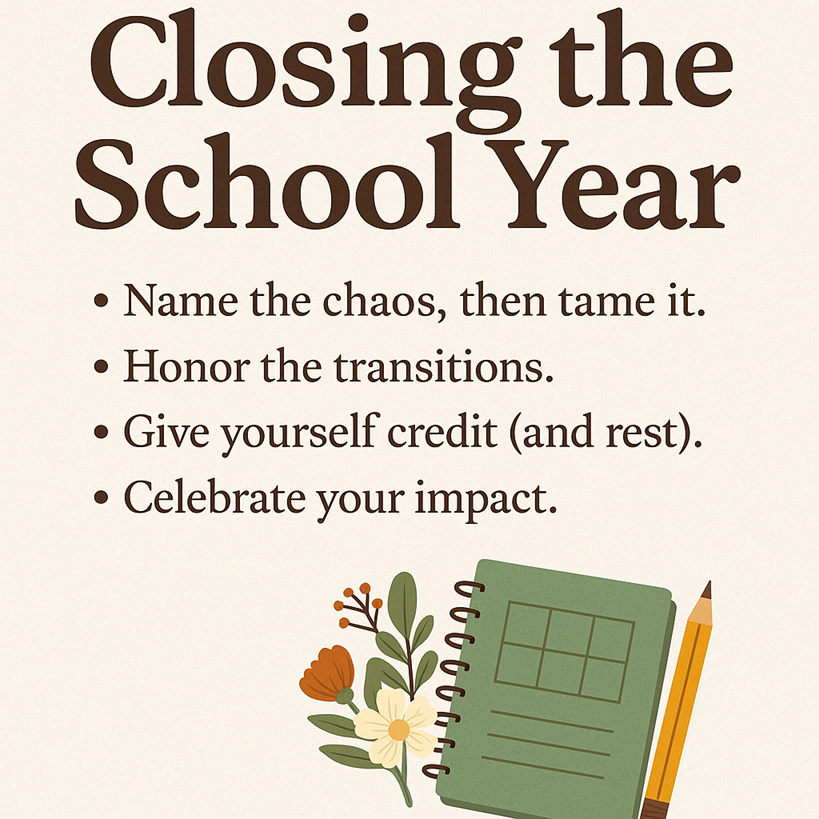
As the school year winds down, the pace quickens and the demands mount. For school counselors, May and June can feel like a sprint and a balancing act all in one. It's a time when students need you most, colleagues lean on your support, and your own energy reserves are running low. School counselors often find themselves running on fumes. Carrying the weight of student needs, unfinished tasks, last-minute crises, and a whirlwind of responsibilities that extend far beyond their job descriptions. While others may be counting down the days to summer, many counselors are counting the number of recommendations still unwritten, transcripts pending, students in crisis, or seniors who haven’t quite made it across the finish line.
At Counseling Today, we see you. And we’re here to remind you: you can finish well, without losing yourself in the process. Closing out the year well isn’t just about task completion—it’s about finishing with intention, grace, and sustainability.
Here’s a practical and heart-centered guide to help school counselors wrap up the year while still caring for students, staff, and themselves.
1. Name the Chaos, Then Tame It
The end of the school year is messy. Acknowledge it. Normalize it. Say it out loud with your team or even with a dry-erase marker on your door: “This is the season of beautiful chaos.” When you give the stress a name, it loses some of its power.
Quick Tips:
📅Create a “Closing Checklist” that’s both practical and emotional to help you track what’s complete, what’s pending, and what can be delegated or delayed. With so many moving parts, checklists are a sanity-saver.
Include:
✅ Final transcript requests and recommendations submitted
✅ Senior clearance or exit interviews
✅ Student check-ins for those you’re concerned about over summer (especially with at-risk or transitioning students)
✅ 504 and IEP updates or meetings (Although this is an inappropriate duty, it is often on our plates. So, we have to be accountable to it.)
✅ One act of kindness for a colleague who helped you this year
✅ One boundary you’ll set for yourself before summer break begins
✅Data summary/report for administration
🤝Support staff and celebrate collaboration. Teachers and staff are equally exhausted. This is a great time to reconnect and recognize the collective effort it took to make the year work. A little connection goes a long way in wrapping up the year on a unified note.
Simple gestures:
✅Drop a thank-you note or treat in a teacher’s mailbox
✅Offer short classroom activities focused on closure and reflection
✅Attend end-of-year events or staff functions if your energy allows
2. Honor the Transitions
While you’re helping everyone else celebrate their endings and beginnings — graduations, goodbyes, and good lucks, —don’t forget that this is a season of transition for you, too. Whether you’ve worked with a student for 3 months or 3 years, letting go is still a process. Whether it’s seniors graduating, fifth-graders moving to middle school, or students relocating, these are important emotional markers for students (and counselors too).
Try This:
✅Create a private ritual for closure:
✅Host a goodbye group or mini-ceremony for students leaving
✅Provide resource lists for post-graduation mental health or community support
✅Encourage memory books, time capsules, or "letter to future self" activities
✅Light a candle at your desk on the last day.
✅Write a letter to the school year: what you’ve learned, what you’re releasing, and what you’re grateful for.
✅Say a prayer, read a poem, or take a quiet walk around campus before you leave for the last time this year.
These small acts remind your nervous system: this chapter is complete. Ritual helps give meaning to change. Don’t skip it, even in the rush.
3. Give Yourself Credit (and Rest)
You’ve shown up in ways no spreadsheet can measure.
✅For the student who cried in your office.
✅For the parent who didn’t know how to help their child.
✅For the teacher who needed a moment of support.
✅For the child who didn’t have the words to say “thank you.”
✅That’s holy work. And now you deserve time to exhale.
Permission Slip: You do not need to schedule every moment of your summer. Productivity does not define your worth. You are allowed to rest, reflect, and restore— without guilt. Rest is not a reward; it’s a right. Protect it fiercely.
4. Strategize for Sustainability
Before you completely check out (and we hope you do check out), consider: What is one thing you wish you’d had this year that could make next year better?
Maybe it’s:
✅A system for documentation
✅A digital calendar for all counseling lessons
✅A student self-referral process
✅A peer support group for secondary counselors
Write that one thing down and give it a placeholder. Not a demand. Just a seed for next season.
5. Celebrate Your Impact
You’ve supported hundreds of others this year. Now is the time to turn some of that compassion inward.
Ideas:
✅Block a day post-students (if possible) for reflection and recovery—not just cleaning
✅Journal your successes and lessons learned
✅Set a summer goal that has nothing to do with school
✅Plan your professional development intentionally—not just to check a box
Even if no one throws a counselor appreciation party, you are worth celebrating. You’ve held things together in ways most people never see.
So here’s our encouragement to you: You made a difference. You showed up. You stayed present. And now, you get to rest.
From everyone at Counseling Today, thank you for your heart, your hard work, and your continued courage. We’ll be here all summer to support you as you restore and prepare for the next year. But for now, close this chapter with pride and peace.
I am a school counselor turned counselor educator, professor, and author helping educators and parents to build social, emotional, and academic growth in ALL kids! The school counseling blog delivers both advocacy as well as strategies to help you deliver your best school counseling program.

I'm a mother, grandmother, professor, author, and wife (I'll always be his). Until October 20, 2020, I lived with my husband, Robert (Bob) Rose, in Louisville, Ky. On that awful day of October 20,2020, my life profoundly changed, when this amazing man went on to be with Jesus. After Bob moved to Heaven, I embraced my love of writing as an outlet for grief. Hence, the Grief Blog is my attempt to share what I learned as a Counselor in education with what I am learning through this experience of walking this earth without him. My mission is to move forward with my own healing as well as to help others in grief move forward to see joy beyond this most painful time.
